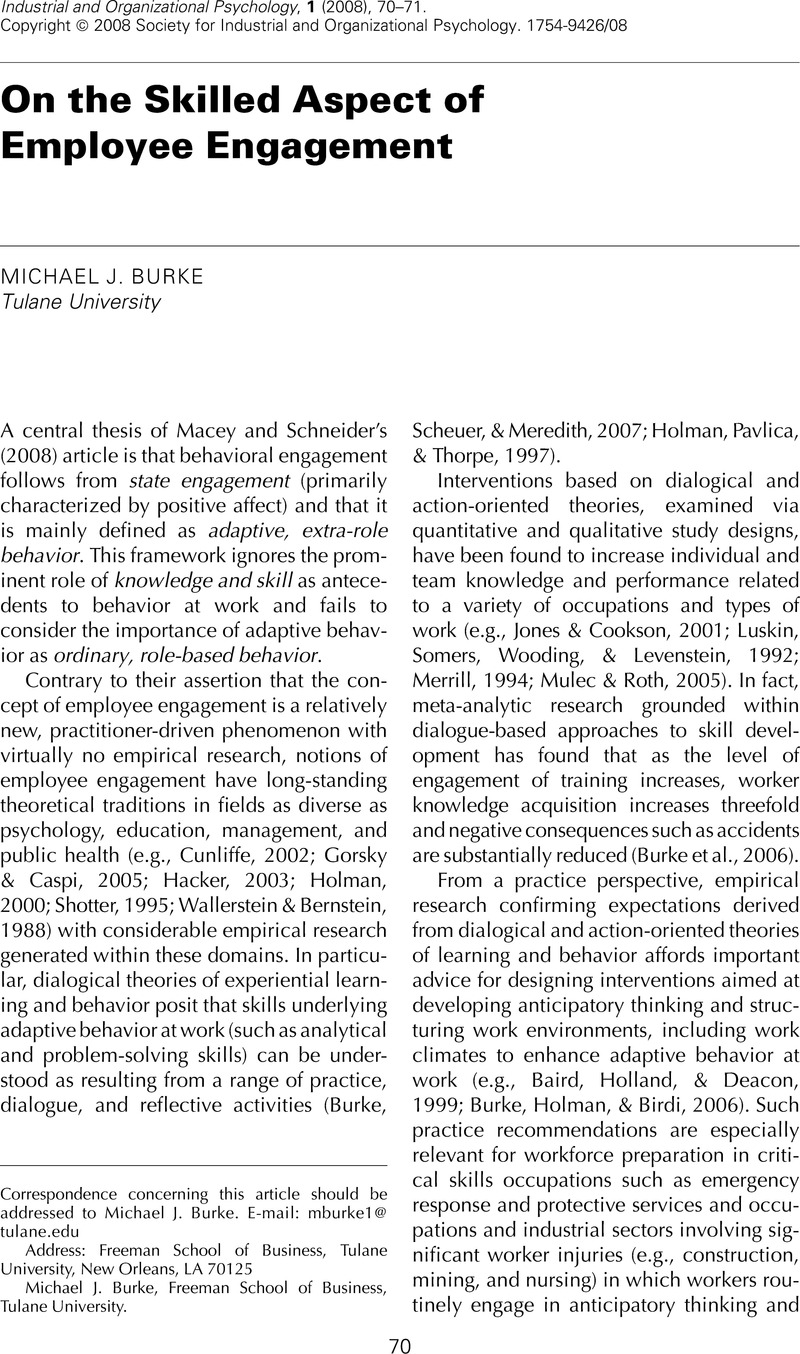Crossref Citations
This article has been cited by the following publications. This list is generated based on data provided by Crossref.
Macey, William H.
and
Schneider, Benjamin
2008.
Engaged in Engagement: We Are Delighted We Did It.
Industrial and Organizational Psychology,
Vol. 1,
Issue. 1,
p.
76.
Schielke, Hugo Josef
Fishman, Jonathan Louis
Osatuke, Katerine
and
Stiles, William B.
2009.
Creative consensus on interpretations of qualitative data: The Ward method.
Psychotherapy Research,
Vol. 19,
Issue. 4-5,
p.
558.
Burke, Michael J.
and
Signal, Sloane M.
2010.
Research in Personnel and Human Resources Management.
Vol. 29,
Issue. ,
p.
1.
CHRISTIAN, MICHAEL S.
GARZA, ADELA S.
and
SLAUGHTER, JEREL E.
2011.
WORK ENGAGEMENT: A QUANTITATIVE REVIEW AND TEST OF ITS RELATIONS WITH TASK AND CONTEXTUAL PERFORMANCE.
Personnel Psychology,
Vol. 64,
Issue. 1,
p.
89.
Valentin, Marie Anttonitte
Valentin, Celestino C
and
Nafukho, Fredrick Muyia
2015.
The engagement continuum model using corporate social responsibility as an intervention for sustained employee engagement.
European Journal of Training and Development,
Vol. 39,
Issue. 3,
p.
182.
Xie, Tian
Shi, Ya-nan
and
Zhou, Jing
2016.
The adverse effect of materialism on employee engagement in China.
Journal of Chinese Human Resource Management,
Vol. 7,
Issue. 2,
p.
100.
Lin, Weipeng
Wang, Lei
Bamberger, Peter A.
Zhang, Qi
Wang, Haifeng
Guo, Wencai
Shi, Jing
and
Zhang, Tao
2016.
Leading future orientations for current effectiveness: The role of engagement and supervisor coaching in linking future work self salience to job performance.
Journal of Vocational Behavior,
Vol. 92,
Issue. ,
p.
145.
Robert, V.
and
Vandenberghe, C.
2018.
L’affectivité positive et négative : des facteurs de protection ou de vulnérabilité à l’engagement au travail.
Psychologie du Travail et des Organisations,
Vol. 24,
Issue. 1,
p.
21.
Chan, Chi On
and
Tay, Huay Ling
2018.
Combining lean tools application in kaizen: a field study on the printing industry.
International Journal of Productivity and Performance Management,
Vol. 67,
Issue. 1,
p.
45.
Jabeen , Shaista
and
Danish, Rizwan Qaiser
2022.
Impact of Structural Empowerment and Employee Engagement on Adaptive Performance: The Mediating Role of Knowledge Hoarding.
Journal of Public Value and Administrative Insight,
Vol. 4,
Issue. 4,
p.
455.
Bhat, Shabir Ahmad
Bashir, Makhmoor
and
Jan, Hafsah
2024.
Work engagement and perceived job performance: does information communication technology orientation matter?.
Global Knowledge, Memory and Communication,





